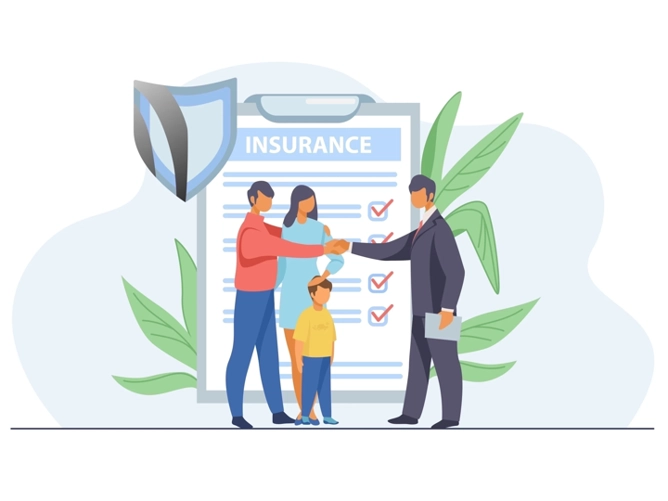![Integration Course in Germany [Personal Experience]](/images/integration-course-in-germany/detailed-guide-about-Integration-course-in-Germany.svg.webp-668w.webp)
Integration Course in Germany [Personal Experience] – 2026
If you are new in Germany or you are planning to move to Germany, then you should know about the integration course. Integration course is basically a German language course that allows immigrants to integrate into a German society. In order to adjust in a completely new society, the utmost thing is to learn the language of that society. This is because, when you cannot communicate with the people around you, then you will be unfit in the society. Taking an integration course can save you from many problems. For example, after completing the course, you will be able to take an appointment from a doctor, you will be able to communicate with your neighbors and colleagues. There are many more advantages of integration courses that will be discussed below.
This blog will cover all aspects of an integration course, including the role and benefits of these courses in professional and personal life, course components, and how to find and enroll in an integration course. Cost and duration of integration courses will also be mentioned in this blog. We will also highlight some personal stories and challenges regarding integration courses faced by immigrants.
What is an Integration Course
The German government has designed an integration course to help expats coming to Germany in adjusting to everyday life. There are two parts of the integration course: a German language course and an orientation course. The total number of lessons is 945, among which 900 lessons are for language courses and 45 lessons are for orientation courses. In 900 lessons, you will learn all day language which includes shopping, school, appointments with doctor or with landlord, children, or mini job. In the next 45 lessons of orientation course, you will learn about German history, politics, and culture.
Who Can Attend an Integration Course?
The integration courses are designed for people who are coming to Germany from different parts of the world. These people who are also called immigrants usually do not have German language skills, which is necessary for everyday life. Although when an immigrant can speak German language with fluency, then an integration course is not mandatory.
How to Apply for an Integration Course?
The regulations for participation in integration course are as follows:
EU citizens are not legally entitled to take part in integration courses. However, EU citizens take permission from the Federal Office for Migration and Refugees to attend an integration course if they have particular integration requirements or their spoken German is not sufficient. For this purpose, they have to complete an application form for an integration course.
Non EU citizens are required to attend an integration course, especially if their German language skills are not adequate. However, this condition can be exempted, if a person cannot attend a part-time course, due to Job timings. You will get to know whether you are required to attend the course or not from the Foreigners’ Authority upon the issuance of your residence title.
Step1:
- If you come from a non-European country, then you can get a permit to attend an integration course, which is called Berechtigungsschein from your local Foreigners’ Authority.
- If you are an EU citizen, then you can apply for an integration course at the Federal Office for Migration and Refugees.
Step 2:
- Find a course provider. In German, the course provider is called Kurstraeger whom you can find on the website of the Federal Office for Migration and Refugees. Try to find your course provider near your home.
- Contact course provider through email or in person. You will have to submit your documents and the course provider will give you information about course syllabus, duration, and cost of course.
- Make registration by following guidelines of the course provider.
[Note]: You must have a valid German resident permit or German visa. In most cases, you visa should be valid for more than 6 months. You can attend the classes according to your course schedule after completing the above steps.
Benefits of Integration Course
There are numerous benefits of Integration courses in terms of both professional progress and everyday life in Germany. The noticeable benefit of the integration course is that it is completed in less than a year. That means the new immigrants can adjust in German society in almost 7 to 8 months.
Integration course is best as well for housewives of immigrants. This will help them learn about German laws, costoms and culture. When the husband has a work permit visa, the wife can attend the course which will help her in communicating with people confidently and in finding a job.
One benefit of attending an Integration course is that an individual can obtain permanent residency or citizenship of Germany in lesser time.
German Citizenship with Integration Course
Typically, immigrants can claim German citizenship in eight years, but with integration courses and a good command in German language can fasten this process.
Course Duration
As it was mentioned earlier in this blog, the integration course is completed in 945 lessons. You will get to learn language in 900 lessons and 45 lessons are for orientation courses. Most of the language schools complete these courses within 7 to 8 months.
Components of Integration Course
1. Language Course
The language course consists of various activities that are designed to communicate in everyday life. Your teacher will conduct tests on completing each level to check the progress of each student. In this course, you will be given different interactive tasks with your fellow students to respond to different social scenarios.
Following are the things you are going to learn in an Integration Course:
- How to make telephone calls
- Visiting the doctor
- How to write emails and letters in German
- How to eat or drink according to German culture
- How to find a job in Germany
- Work ethics
- How to fill administration and other forms
- How to travel within Germany
- Information regarding insurances, banks and services
[Note]: At the end of the integration course, all participants will have a final test which is also called the German language test for immigrants (Deutschtest für Zuwanderer). If you are unable to pass this language test, then you can give the test again after repeating about 300 course lessons.
-
Orientation Course
After completing the language course, you will start having orientation course classes. In this course, you will learn different aspects of politics, culture, history and life in Germany. Following is the comprehensive list of what you are going to learn in 45 lessons of orientation course:
- Societal historical and cultural values of Germany
- The legal system of Germany
- Human rights and obligations
- German political parties, the political system and democracy
[Note]: On the completion of the orientation course, there will be a test consisting of 33 questions from the course. This test is comparatively easier and the percentage of passing students is high.
1.) German Language Test (Telc DTZ)
At the end of the language course, you will have to take the final exam. This exam has four parts.
- Speaking (15 minutes approx)
- Reading
- Writing
- Listening
This exam is conducted to check whether a person can understand, write and speak the German language to the B1 level.
You will get an Integration Course Certificate if you will pass this exam. This certificate certifies your German language skills at the B1 level.
[Note]: You will get your half of the course fees back, if you pass the final exam within 2 years of application.
2.) Living in Germany Test (Leben in Deutschland)
This test will be conducted after completing the orientation course. It consists of 33 questions that came out of 300 questions. These questions are related to the history, law, and culture of Germany. Some people find this course interesting as it gives an overview of German history which is unique, long, and complex. While some people find this course boring. However, this course is extremely easy to pass as you only have to learn 300 questions, which can be learned in 10 days.
If you pass both of the mentioned exams, then you will receive a certificate called Zertifikat Integrationskurs.
Cost and Subsidies of an Integration Course
The Integration course fee is 2.22 euros per lesson, which is paid in advance before each module of 100 hours. It means 220 euros per module approximately and the entire course costs 1900 approximately.
However, if your income is low, you can apply to the BAMF to reduce or waive the cost of your course. Students who receive unemployment benefit II, do not need to pay the course fee. Moreover, if you have been granted a free of cost integration course, then you can also apply for travel expenses.
If you pass the final exam and get the certificate, then BAMF will pay your half of the fee of the whole integration course. But, you have to complete the course and pass the exam within two years in order to get your half course fee back. Simply apply to your regional BAMF office to get this reimbursement.
Personal Story and Experience
As an expat, I did an Integration course during my first year in Germany, and it was an overwhelming experience. It was a morning course, so I used to have classes from 9 am to 1 pm.
This course has transformed my life, both personally and professionally. I got to communicate with my neighbors and my husband’s German friends. Now, I do not feel a misfit in the gatherings. Suddenly, it has become easy for me to go to a restaurant and order in German by myself. I had started taking appointments from my doctor.
I was fortunate to have class fellows who cannot speak English, so I had to communicate with them in German. Personally, I always try to communicate with people in German. This is because it is the only way to master any language.
It was due to my German language skills that I got a mini job at Bio-supermarket in the first year of my life in Germany. In my experience, if you can speak German even with a lot of mistakes, then you can secure a job more easily.
During the integration course, my teacher used to give all the students real life scenarios to practice German. For example, one day I used to communicate with other class fellows as a salesperson at a clothing store. The other day, I was given a role to play as a waitress.
Challenges and Solutions
Learning a foreign language is always challenging. During integration courses, people might face some common challenges such as cultural adjustment and language barriers. In my course, some people were old and some young people used to learn German at a slower pace as compared to others. These challenges are real and there is nothing to be ashamed of. Everybody learns at a different pace with a different capacity.
Some practical solutions of the above challenges are as follows:
- Repeat the lesson at home everyday
- Do the homework regularly
- Make a speaking partner from your course
- Try to speak half an hour with your speaking partner daily after class
- Find Youtube channel that solve integration exam papers
- Learn German Vocabs from effective APPs
Apart from the above solutions, you can also search groups on Facebook or Telegram with the name ‘Stammtisch’ (meetups to learn German). Such groups arrange weekly meetups in almost every city for the expats to speak and learn German with other expats. Sometimes native German speakers also join these events.
Conclusion
Hopefully, this blog helped you regarding the Integration course of German language. Everything related to the course has been explained in this article, which can lead you to apply for the Integration course as soon as possible. This course will definitely bring improvement in your life, and you will see how things and people change around you when you speak their language.
After completing the integration course and having confidence in speaking German language, you might consider applying for another German language course to completely integrate and get benefits from German society.
Related Links
Federal Office for Migration and Refugees: Integration course
Integration course BAMF
Goethe Institute:Integration course

Jibran Shahid
Hi, I am Jibran, your fellow expat living in Germany since 2014. With over 10 years of personal and professional experience navigating life as a foreigner, I am dedicated to providing well-researched and practical guides to help you settle and thrive in Germany. Whether you are looking for advice on bureaucracy, accommodation, jobs, or cultural integration, I have got you covered with tips and insights tailored specifically for expats. Join me on my journey as I share valuable information to make your life in Germany easier and more enjoyable.


![Best Apps to Learn German [Free + Paid]](https://liveingermany.de/images/best-app-to-learn-german/best-top-free-and-paid-learn-german-app-with-pros-and-cons.svg.webp-668w.webp)


